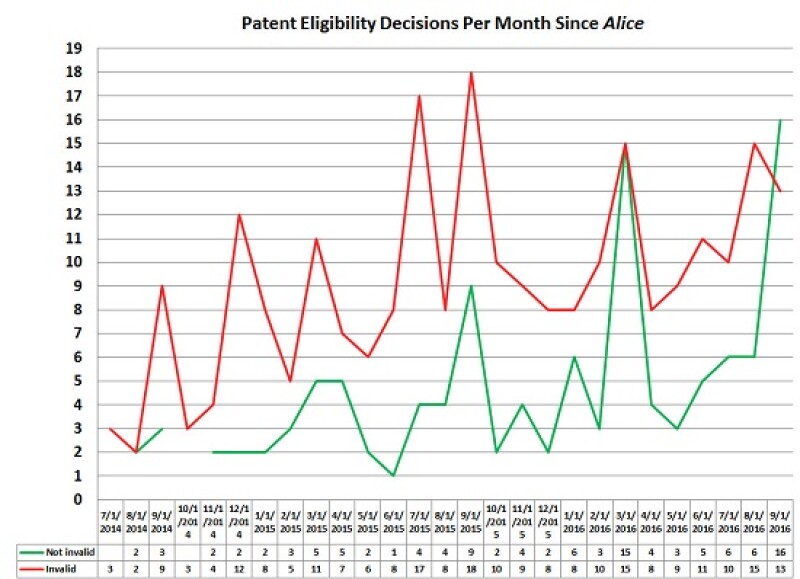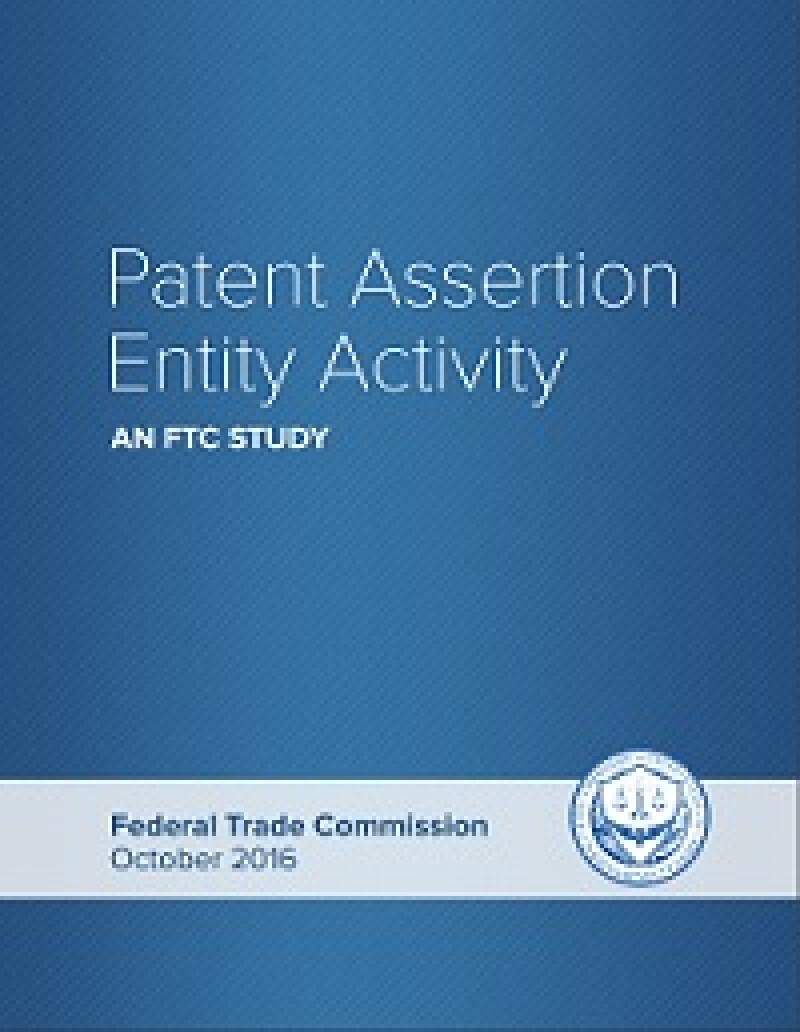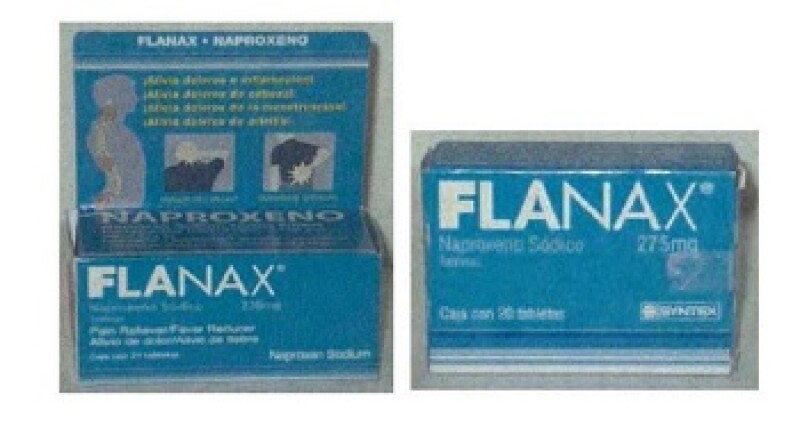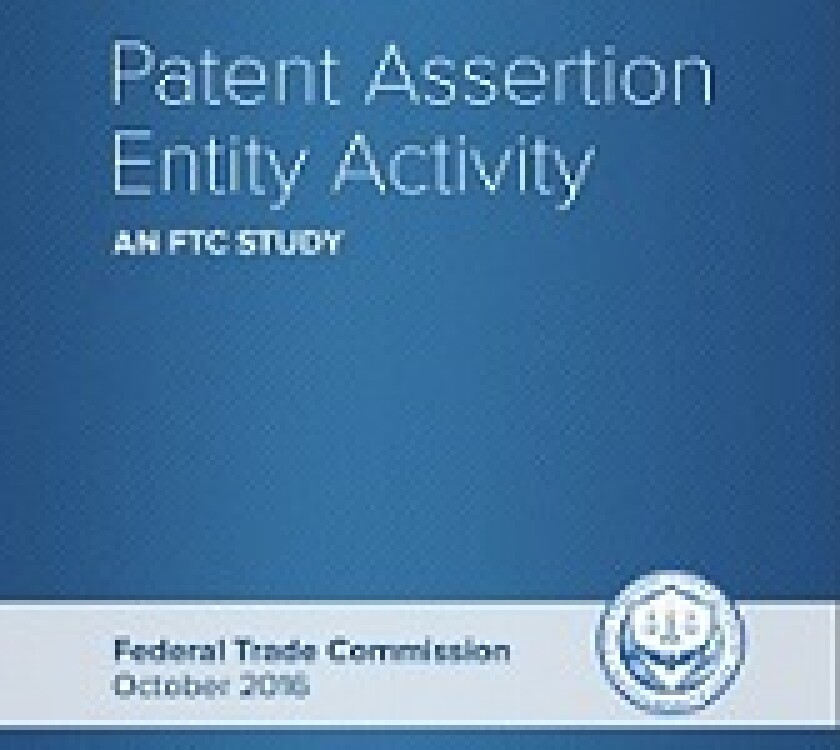Also on the blog in the past week were:
Concern and confusion at the US Copyright Office
Brexit and the Unitary Patent: where are we now?
We’ve also posted the following articles in the past week (log in via subscription or free trial):
US acting register of copyrights announced as Pallante given new role
Interview: Time Inc assistant general counsel, Jennifer Chung
Pure Storage agrees $30m patent litigation settlement with Dell
Samsung v Apple analysis: design patents put to the test at Supreme Court
Where to get free advice concerning IP disputes in the UK
Eight finalists shortlisted for DesignEuropa awards
AliceStorm blows over?
September was the first time since Alice that the number of federal court decisions finding eligible subject matter exceeded those finding ineligible subject matter, according to BilskiBlog.
Robert Sachs of Fenwick & West tracks Section 101 decision on the blog and has called the wave of patent invalidations on 101 grounds “AliceStorm”. Sixteen decisions in September found eligible subject matter compared with 13 finding ineligible.

“Those sixteen decisions also mark the highest number of eligibility decisions in a single month,” said Sachs. “The most significant contribution to the switchover is that only two motions to dismiss under § 101 were granted in September, compared to nine that were denied, the largest gap since March 2016 (6 granted, 10 denied).”
This pushed the overall invalidity rate from Federal Circuit and district court decisions to 68%, the first time it has dropped below 70%. The success rate on motions on the pleadings has dropped below 67% for the first time, to 64.9%.
“At best, this data may be interpreted as indicative of a shift in eligibility within the federal district courts, but I would prefer to see these numbers hold for several months,” said Sachs. “My caution is occasioned by the Federal Circuit’s recent Section 101 decisions. While the McRO decision has been widely viewed as a positive development, the Court continues to affirm more invalidity decisions than it reverses. Compared to the single McRO decision in September, the Court affirmed seven lower court ineligibility decisions, including reversing a lower court’s finding of eligible subject matter in the Intellectual Ventures v Symantec case."
The FTC’s missed opportunity
The Federal Trade Commission released its long-awaited PAE report earlier this month. Reactions are still coming out to the almost 270-page report, including from PAEs.

Peter Detkin, founder of Intellectual Ventures, in a blog post said the report has some interesting statistics but was also a missed opportunity. He says the key finding of the report was that not all PAEs are created equal, with the FTC distinguishing between portfolio PAEs and litigation PAEs.
“The Report is disappointing in many respects – for example, it offers legislative recommendations not supported by the evidence in the report, and it misses a key opportunity to analyse the fundamental issue of how to value the mission and impact of PAEs,” says Detkin. “But overall the in-depth analysis of the different models of PAE should provide useful insights in the ongoing discussions of patent policy.”
He said the FTC highlighted a flaw in other studies that rely only on publicly available data. Instead, the FTC used its subpoena power to gather private data to get a deeper understanding of PAE business models.
“More broadly… while the FTC did a great job analysing different business models, it missed an opportunity to analyse the larger market in which these models operate,” said Detkin. “Despite the reams of data collected in the course of this study and the many resources devoted to it, the Report disappointingly fails to address fundamental questions about the impact of PAE activity on innovation and patent generation.”
Redskins timeout granted

The Washington Redskins case has been stayed until after the Supreme Court has ruled in Lee v Tam, reports The Washington Post. Both cases involve the issue of disparaging trade marks. Oral arguments in the Redskins case were scheduled in the US Court of Appeals for the 4th Circuit for December 9.
Cuban cigar concerns
Two US Congressman have criticised President Obama’s decision to ease restrictions on Cuban cigars, raising IP concerns, reports The Hill.
Senator James Lankford and Representative Mario Diaz-Balart, both Republicans, said in a letter: ““What steps is your administration taking to ensure that trademarks belonging to US companies are not adversely affected, or possibly further exploited or expropriated, by your policy of allowing imports of rum and tobacco products?”
SCOTUS petition in Flanax case
The Flanax trade mark case is being appealed to the US Supreme Court, reports the Likelihood of Confusion blog.
The Question Presented is: Whether Sections 14(3) and 43(a) of the Lanham Act allow a foreign business that has neither used nor registered its trademark in the United States to sue the owner of a US trademark for conduct relating to the owner’s use of its US mark.

The petition, filed by Ronald Coleman of Archer & Greiner, states: “In Lexmark International Inc v Static Control Components, Inc, 134 S. Ct. 1377, 1388-90 (2014), this Court held that the Lanham Act does not extend a cause of action to every plaintiff with Article III standing, but instead ‘only to plaintiffs whose interests fall within the zone of interests protected’ by the statute, and only ‘to plaintiffs whose injuries are proximately caused by violations of the statute’.”
It continues: “Section 14(3) of the Lanham Act, 15 USC § 1064(3), allows certain aggrieved persons to seek cancellation of a US trademark. Section 43(a) of the Lanham Act, 15 USC § 1125(a), creates causes of action for false association and false advertising. The courts of appeals are divided over whether these provisions extend a cause of action to foreign plaintiffs who have neither registered nor used their trademarks in the United States.”
In March, the Fourth Circuit reversed the Eastern District of Virginia’s dismissal for lack of standing and found that use of the Flanax mark is not a prerequisite to sue for unfair competition or false advertising under Section 43(a) of the Lanham Act or for cancellation under Section 14(3). The case was remanded to the district court.
Bayer had used the Flanax mark for naproxen sodium pills in Mexico going back to the 1970s. In 2004, Belmora started selling Flanax pills in the US in similar packaging to that used by Bayer in Mexico. Belmora registered the Flanax trade mark with the USPTO in 2005. In 2014, the Trademark Trial and Appeal Board (TTAB) sided with Bayer and cancelled the registration.
However, the Eastern District of Virginia the following year dismissed Bayer’s false association and false advertising claims based on its reading of the Supreme Court’s Lexmark decision and ruled that an owner of a foreign mark that is unregistered is not allowed under the Lanham Act to assert priority rights in the US. Lexmark set out a two-prong test for assessing standing under the Lanham Act.
Apple says Amazon is selling fake products

Apple has complained that a “flood” of counterfeit goods claiming to be Apple products are being sold on Amazon.com, reports the BBC. The claim concerns items sold through Amazon’s fulfilment scheme, where third parties list their goods.
The technology giant is suing vendor Mobile Star. "Mobile Star has been deceiving Apple customers and putting their safety at risk by selling counterfeit power adapters," an Apple spokesman told the BBC.
The company said it bought more than 100 iPhone devices, own-brand power adapters and charging cables and found almost 90% of them were fakes. "These counterfeits have the potential to overheat, catch fire and deliver a deadly shock to consumers while in normal use," said Apple.









